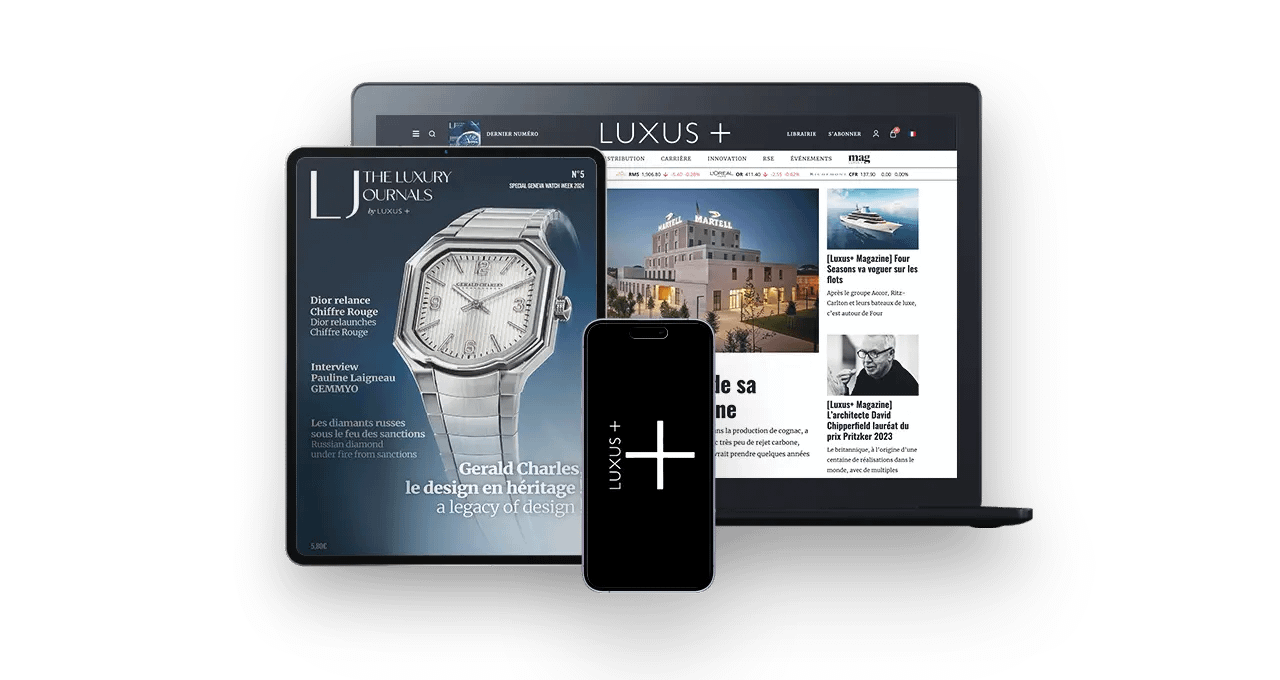Chanel becomes a long-term partner of the Boat Race, the legendary rowing race between Cambridge and Oxford universities. The announcement comes at a time when Britain’s most prestigious universities are struggling to fill up with foreign students.
On October 22, the Maison de la rue Cambon, headquartered in the UK since 2021, announced a collaboration with the Boat Race, the country’s biggest amateur sporting event and a rowing competition between two of the UK’s oldest and most prestigious universities, Oxford and Cambridge.
Chanel thus becomes the first brand to be both sponsor and official partner of the famous rowing race, which celebrates its 195th anniversary this year.
Scheduled for April 13, 2025, the event will henceforth be known as the Chanel J12 Boat Race.
The country’s oldest major sporting event
The Boat Race has been held every year since 1829.
On London’s River Thames, two teams of eight rowers from Oxford and Cambridge universities compete. These are not only the most prestigious universities in the UK, but also the oldest, having opened their doors in 1241 and 1209 respectively.
Initially reserved exclusively for boys, the competition was opened to women in 1927.
And the event is far from confidential, hence Chanel’s interest in associating itself with it. In fact, some 250,000 people attend the annual Boat Race on the banks of the London river, while several million viewers can follow its broadcast by the BBC.
On April 13, boys and girls will take part in a race renamed the Chanel J12 Boat Race, in line with the partnership with the fashion house. The 4.25-mile race between Putney and Mortlake in London will see the 79th women’s race succeed the 170th men’s race.
Discipline of excellence
Since the 19th century, rowing has been tinged with an aristocratic virtue, like fencing and horse-riding, combining team spirit, the great outdoors and endurance.
These values are shared by Chanel, whose President of CHANEL Watches & Fine Jewellery, Frédéric Grangié, reminds us that ” synchronization in rowing is as crucial to the race as watchmaking craftsmanship to ensure precise timing. Each rower, like each mechanism in a watch, must work as one man; the balance, weight and movements of the oar must all be impeccably synchronized.”
While the discipline remains a leisure pursuit for ordinary Oxford and Cambridge students, it provides a rare intensity of training for Boat Race competitors.
Selected in September, those who will proudly represent their school’s colors train twice a day. The only exceptions are Mondays and weekends, which are entirely devoted to sports preparation, alternating between indoor and on-the-water exercises.
Historically, the members of these exceptional teams are often former Olympians or national team members. At the same time, others join the GB Rowing Team, the national rowing team. Not to mention the fact that some students come and go with the 8 schools that make up the Ivy League across the Atlantic.
This quest for excellence reflects the sporting roots of Chanel, whose foundation in 1910 was directly inspired by materials usually reserved for sportswear, such as jersey and tweed.
This is also reflected in the J12, the unisex watch launched in 2000 that now gives its name to the competition. The name of this iconic timepiece was inspired by the 12-meter J-Class racing boats of the early 20th century.
International student exodus
But behind the glitz and glamour of the Boat Race lies another, more painful reality: declining revenues for the UK’s higher education institutions, concomitant with a fall in the flow of international students, to the point of prompting the Guardian to question the “end of an academic golden age” in the country.
A situation that began with COVID with the temporary closure of establishments and worsened with the Brexit, rising energy prices and inflation. All factors increasing tuition fees for international students. Add to this the restrictions on student visas (both in terms of post-graduation working conditions and family reunion) decided by the previous government of Rishi Sunak, and you have international students in the doldrums.
Yet the UK has long been renowned for the academic excellence of its courses, as well as for boasting 4 of the 10 best universities in the world, according to the prestigious QS World University ranking. The country used to welcome many Chinese, Indian and Nigerian students willing to pay £38,000 (45,000 euros) a year.
To alleviate the situation, a number of avenues are being explored, such as merging establishments with one another or with certain institutions. Another solution is to increase university fees for British students, currently capped by the government at £9,250 per year (€10,900). However, this last option is not convincing, given that many British students are already struggling to find accommodation and support a cost of living, excluding campus fees, which has also become particularly high.
Read also > Agache, the Arnault family’s holding company, to become majority shareholder of Paris FC
Featured Photo: © Chanel




































